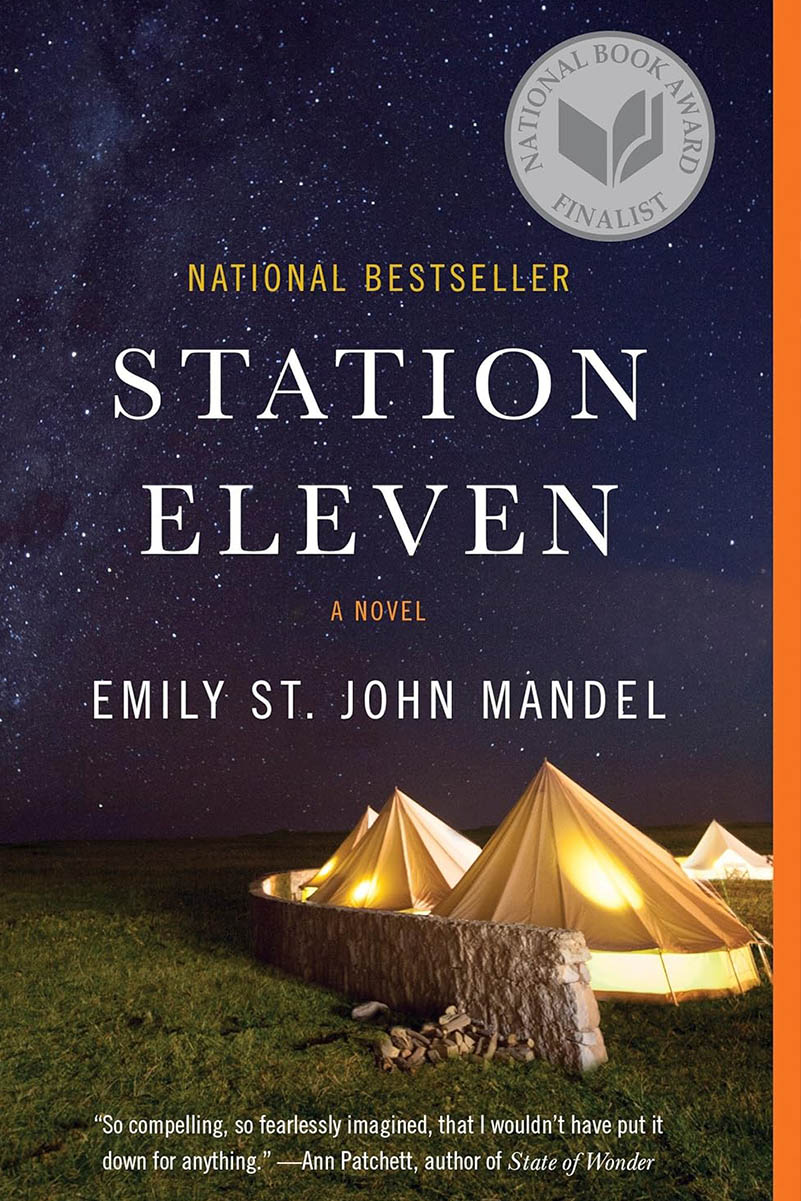Station Eleven
by Emily St. John Mandel
“Hell is the absence of the people you long for.”
Emily St. John Mandel takes a topic that inevitably attracts interest in her novel, Station Eleven: catastrophe and pandemic disaster. Yet it doesn’t seem over-done or extremely unrealistic—her novel has every science fiction writer’s ultimate goal: liveliness and authenticity.
Mandel’s biggest bestseller grapples with topics of illness and post-apocalyptic worlds, shrouded in misery and wreckage. Having risen in popularity during COVID (as readers found comfort in the extremities of Mandel’s—the reality wasn’t as bad).
The novel opens with the death of famous actor Arthur Leander, who has a heart attack on the stage whilst performing the titular character during Shakespeare’s King Lear. Mandel’s choice of play is apt—both Leander and
Lear (Mandel plays with the similarity in names) seem to keep making grave life mistakes (both are estranged from their children) and their lives simmer with regret. Mandel’s novel seep with philosophical ideas, with loss and the impermanence of life at the forefront.
Station Eleven heavily intertwines its philosophizing with Shakespeare. King Lear’s relevance as a tragedy plays a major role with Arthur Leander’s unhappy lifestyle, performing Romeo and Juliet gives a character joy and allows her to forget her violent past. With Shakespeare, Mandel merges art and death. Shakespeare seems to be the only thing that remains in the post-apocalyptic world—when everything from the old world seems to dissipate from the memories of the survivors, only Shakespeare remains intact. Art’s relevance, Mandel argues, will outlive us all.
Station Eleven’s title comes from a comic book about a space station that parallels life on Earth—similarly to how the pandemic-stricken distopia resembles it too. Both twist the normalcy we’re used to. The comic highlights the beauty of both worlds—how one should appreciate the present, no matter how elegant and beautiful the past or future may be. Mandel approaches the topic of appreciation and loss in a different way than others. Kirsten, one of the Shakespearean performers, says, “The more you remember, the more you’ve lost.” Those who remember life before the pandemic struggle the most—they’re the only ones who still see their life before the tragedy as the default and strive the hardest to retain the appearances of their past. Mandel’s intentions are blurred, undeniably on purpose, making her didactic approach to the writing seem further authentic to the storylines. One thing is clear, however.
Mandel wants us to reexamine how we perceive our daily life.



